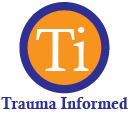Capitol Hill, Washington, DC, Cannon Caucus Room (CHOB 345) – October 24, 2008
- Issue Brief – Family Concerns for Veterans Affected by Combat Stress
- Veterans and Families – Reintegration Issues Following Combat Stress and Trauma
 Approximately 1.6 million soldiers have served in Afghanistan and Iraq since October 2001. According to a recent study by the RAND Corporation, of this population, about 20%, or 300,000, showed the signs of post-traumatic stress disorder (PTSD) or major depression, yet just over half of them sought treatment. According to RAND researchers, of the 53 percent who sought treatment only half received minimally adequate treatment. In other words, of the 300,000 who displayed signs of PTSD or major depression, only a quarter received a modicum of help. While this number reflects those with PTSD, there are still many more returning veterans that have less severe, but still significant trauma wounds from combat that affect their lives, relationships, and future. And in the bigger picture of who is affected, there are also hundreds of thousands of family members and loved ones who may also need support while their loved one is deployed and after reintegration. While the recognition of PTSD has been a major step forward, war conditions that create responses like startle response, flashbacks, aggression, and high levels of adrenaline have all played an important role in the struggle to maintain safety at home. The public and political view on trauma-related responses and reactions at home have so far been viewed as domestic violence that requires anger management and other treatments. These responses, however, may have much more to do with the trauma experienced and condition created in war, and much less to do with directed interpersonal violence. In order to prevent these incidents that are so detrimental to family connection and safety, this briefing will focus on the need to educate veterans and their families regarding the impact of prolonged combat trauma and the repeated exposure to violence and how this can change the personal and family dynamic after returning home. This briefing brings together experts and interest groups representing veterans, military families, crime victim and domestic violence providers, and mental health and substance abuse recovery providers to begin addressing the unique needs of this population in an effort to foster healing while promoting family safety and connection.
Approximately 1.6 million soldiers have served in Afghanistan and Iraq since October 2001. According to a recent study by the RAND Corporation, of this population, about 20%, or 300,000, showed the signs of post-traumatic stress disorder (PTSD) or major depression, yet just over half of them sought treatment. According to RAND researchers, of the 53 percent who sought treatment only half received minimally adequate treatment. In other words, of the 300,000 who displayed signs of PTSD or major depression, only a quarter received a modicum of help. While this number reflects those with PTSD, there are still many more returning veterans that have less severe, but still significant trauma wounds from combat that affect their lives, relationships, and future. And in the bigger picture of who is affected, there are also hundreds of thousands of family members and loved ones who may also need support while their loved one is deployed and after reintegration. While the recognition of PTSD has been a major step forward, war conditions that create responses like startle response, flashbacks, aggression, and high levels of adrenaline have all played an important role in the struggle to maintain safety at home. The public and political view on trauma-related responses and reactions at home have so far been viewed as domestic violence that requires anger management and other treatments. These responses, however, may have much more to do with the trauma experienced and condition created in war, and much less to do with directed interpersonal violence. In order to prevent these incidents that are so detrimental to family connection and safety, this briefing will focus on the need to educate veterans and their families regarding the impact of prolonged combat trauma and the repeated exposure to violence and how this can change the personal and family dynamic after returning home. This briefing brings together experts and interest groups representing veterans, military families, crime victim and domestic violence providers, and mental health and substance abuse recovery providers to begin addressing the unique needs of this population in an effort to foster healing while promoting family safety and connection.
- Todd Bowers, Director of Government Affairs, Iraq and Afghanistan Veterans of America and veteran (video, written remarks)
- Thomas Berger, Ph.D., Chair, PTSD & Substance Abuse Committee, Vietnam Veterans of America (video, written remarks)
- Kathryn Power, M.Ed., Director, Center for Mental Health Services, Substance Abuse and Mental Health Services Administration, U.S. Department of Health and Human Services (video, written remarks)
- John Baker, Veterans’ Initiative Center and Research Institute (video)
- Brigadier General Dr. Stephen Xenakis, retired United States Army (video)
- Helga Luest, President and CEO, Witness Justice (written remarks)
- Addiction, Treatment and Recovery Caucus
- Mental Health Caucus
- Veterans’ Mental Health Caucus
- Victim’s Rights Caucus
- Rep. Corrine Brown (D-FL)
- Rep. Filner (D-CA), Chairman of the House Veterans’ Affairs Committee
- Rep. Phil Hare (D- IL)
- Rep. Michaud (D-ME), Chairman of the House Veterans’ Affairs Subcommittee on Health
- American Association for Marriage and Family Therapy
- American Institute on Domestic Violence
- American Mental Health Counselors Association
- American Probation and Parole Association
- American Psychoanalytic Association
- Andrus Children’s Center
- Bazelon Center for Mental Health Law
- Campaign for Mental Health Reform
- Citizens United for Rehabilitation of Errants
- Council on Crime and Justice
- Durham Police Department Victim Services Unit
- Family Nonviolence, Inc.
- Gift from Within
- Iraq and Afghanistan Veterans of America
- Kent Center for Human and Organizational Development
- Men Can Stop Rape
- Men Stopping Violence
- Mental Health America
- Mental Health Liaison Group
- National Association for Children’s Behavioral Health
- National Association of Social Workers
- National Association of State Mental Health Program Directors
- National Center on Domestic and Sexual Violence
- National Center on Family Homelessness
- National Council for Community Behavioral Healthcare
- National Veterans Foundation
- Sacred Circle: National Resource Center to End Violence Against Native Women
- Stop the Silence: Stop Child Sexual Abuse, Inc.
- Therapeutic Communities of America
- Veteran’s Health Council
- Veterans’ Initiative Center and Research Institute
- Vietnam Veterans of America
- Witness Justice
This briefing is hosted by Witness Justice with the Veteran’s Initiative Center and Research Institute; supported by the Waitt Institute for Violence Prevention.
1Invisible Wounds of War: Psychological and Cognitive Injuries, Their Consequences, and Services to Assist Recovery (2008). Tanielian, Terry, and Lisa H. Jaycox, eds. The RAND Corporation. Available http://veterans.rand.org.






